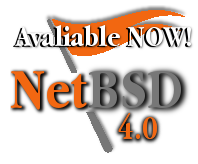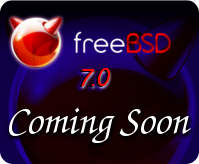For the past couple of days I have been playing around with VirtualBox.
VirtualBox is a family of powerful x86 virtualization products for enterprise as well as home use. Not only is VirtualBox an extremely feature rich, high performance product for enterprise customers, it is also the only professional solution that is freely available as Open Source Software under the terms of the GNU General Public License (GPL).For more information please see: About VirtualBox.
VirtualBox
VirtualBox 1.4.0 was realised on June 5, 2007 for Windows and Linux. It now contains support for 64bit Linux Hosts, as well as better networking and storage solutions, (for full details please see: Changelog.)
I have tried a earlier version of VirtualBox, but had limited success installing it. The new version installed perfectly.
I used Automatix in Ubuntu 7.04 ("Feisty Fawn") to install it. Yet there are many other binary versions, including a beta version for OS X, (Intel Macs only). For downloads please see: VirtualBox Downloads.
So far I'm very impressed with VirtualBox. In my opinion it's the best virtualization software I have tried to date. I've found it professional, and easy to use. I feel like the programmers have really thought about how to make this a good product from a user standpoint. Also it is OpenSource, what a wonderful bonus.
There are a number of problems, (to be expected with a new piece of software). Yet each time I have gone to write a bug report; the problem has either been fixed and is available in SVN (subversion) or it's currently being fixed. That impressed me.
Unfortunately there is a problem running OpenBSD, and NetBSD as vm's (virtual machines). Yet the issue has been solved in SVN.
I'm running a FreeBSD vm and it is beautiful. I thought I might have trouble as the machine I'm running it on only has 512MB of RAM, however it's been wonderful. I wouldn't recommend any less than 512MB though. When I close VirtualBox it cleans out the RAM amazingly well.
I will write more about it, when I can install some more virtual machines to play with. I'm intrigued to see if DragonflyBSD, and Slackware will work in it.
If you would like information on installing and using VirtualBox please see:
- End-user documentation
- VirtualBox HOWTOs and tutorials
- Frequently Asked Questions for end users
- Status: Guest OSes
- Using VirtualBox to run Ubuntu and any other operating system
EDIT: As pointed out by one of my readers VirtualBox is actually released under two licences (dual licensing). There are two versions:
The Open Source Edition (OSE) is released under the GNU General Public License V2 and:
The full VirtualBox package, which is free of charge for personal use or evaluation purposes is released under the Personal Use and Evaluation License.
For more information please see: VirtualBox Licensing FAQ.






3 comments:
Interesting - I have been trying Virtualbox for the last 2 days - managed to get XP,Office2003 et al working.
However, the openSource bit needs a caveat.
a) Most of the stuff is released as openSource
b) Some source is closed source - esp. the part about USB and shared folders etc.
c) Licensing - for the openSource components - is GPL. But for the rest, it is evaluationware. (a proprietary license from the company)
d) Interestingly, for purchase, the site does not have an online mechanism - they redirect to a broken link - which goes back to their office address.
Hi
I don't have any clue of Slackware working on virtualbox, but DragonFlyBSD doesn't boot at all
There is a fix for the BSD's in VirtualBox SVN (subversion) Thank you for the information, have fun :)
Post a Comment